Information
Many are gone..*some too soon* but NOT forgotten. I miss Minnie Riperton and Phyllis Hyman. I miss Shirley Horn..This group is put together to spotlight these grand divas..and their accomplishments.
Website: http://msoldschool.ning.com/
Location: Out Of The Past Island
Members: 14
Latest Activity: Sep 26, 2017
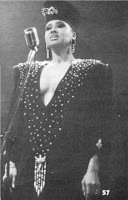 DIVA. A reference made to a female performer (usually an opera singer). In
DIVA. A reference made to a female performer (usually an opera singer). In 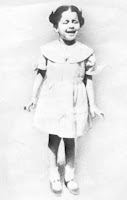 the popular vernacular of the music business, particularly in black music circles, the term diva takes on a whole other meaning. It implies that a female artist is demanding, difficult, uncompromising, inflexible. It can also be considered a term of endearment, referring to the incredible talent they possess, making them a cut above the rest. In addition to these 'Diva Qualities', Phyllis was also very elegant, statuesque, radiant, photogenic, and jazzy. Phyllis Hyman was truly a SOPHISTICATED LADY!!
the popular vernacular of the music business, particularly in black music circles, the term diva takes on a whole other meaning. It implies that a female artist is demanding, difficult, uncompromising, inflexible. It can also be considered a term of endearment, referring to the incredible talent they possess, making them a cut above the rest. In addition to these 'Diva Qualities', Phyllis was also very elegant, statuesque, radiant, photogenic, and jazzy. Phyllis Hyman was truly a SOPHISTICATED LADY!!With so much media attention focussed on current would-be's, wanna-be's and has been's, it's rare to find
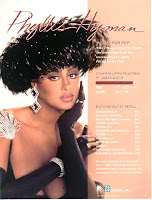 any pertinent coverage of the women who make up the backbone of today's R&B, Pop and Jazz fields. Mariah Carey, Whitney Houston, Toni Braxton, and a host of girl groups owe a tip of the hat to their predecessors, women who didn't glide so easily to the top of the charts, or at least with such frequency.
any pertinent coverage of the women who make up the backbone of today's R&B, Pop and Jazz fields. Mariah Carey, Whitney Houston, Toni Braxton, and a host of girl groups owe a tip of the hat to their predecessors, women who didn't glide so easily to the top of the charts, or at least with such frequency.Phyllis Hyman, Jean Carne, Marlena Shaw, Melba Moore, Chaka Khan, and Angela Bofill have all been recording for many years as underappreciated Divas.
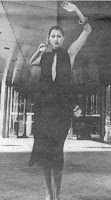 Unlike Houston, Carey, and Braxton however, these women's careers have progressed like quiet thunder, providing them with regular touring work (while also fighting brutal & unfair record companies), and also being constantly in demand as guest vocalists on a variety of albums/CDs.
Unlike Houston, Carey, and Braxton however, these women's careers have progressed like quiet thunder, providing them with regular touring work (while also fighting brutal & unfair record companies), and also being constantly in demand as guest vocalists on a variety of albums/CDs.Devoted fans of the late singer Phyllis Hyman describe her as a
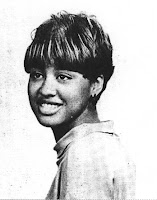 songstress extraordinaire with a no-nonsense attitude, and a lavish, larger than life stage persona. Deep-voiced and statuesque, Phyllis sang with a life affirming energy and emotional intensity found in few other female vocalists. Born in Pittsburgh in 1949 (and raised in Philadelphia), her professional career began in New York city where, during an engagement, she was spotted by producer Norman Connors and contemporaries Jean Carne and Roberta Flack among others. Phyllis was immediately offered a guest appearance on Connors' 'You Are My Starship' album (1976), which included her classic rendition of 'Betcha By Golly Wow' (previously a hit for The Stylistics in the early 1970's).
songstress extraordinaire with a no-nonsense attitude, and a lavish, larger than life stage persona. Deep-voiced and statuesque, Phyllis sang with a life affirming energy and emotional intensity found in few other female vocalists. Born in Pittsburgh in 1949 (and raised in Philadelphia), her professional career began in New York city where, during an engagement, she was spotted by producer Norman Connors and contemporaries Jean Carne and Roberta Flack among others. Phyllis was immediately offered a guest appearance on Connors' 'You Are My Starship' album (1976), which included her classic rendition of 'Betcha By Golly Wow' (previously a hit for The Stylistics in the early 1970's).In 1977 Buddah Records released her self-titled debut LP which featured the hits 'Loving You/Losing You' and 'I Don't Wanna Lose You'.
A year later Hyman was signed to Arista Records.
 Her premiere album for the label 'Somewhere In My Lifetime', was released in 1978 ('Somewhere In My Lifetime' included many tracks that Phyllis
Her premiere album for the label 'Somewhere In My Lifetime', was released in 1978 ('Somewhere In My Lifetime' included many tracks that Phyllis 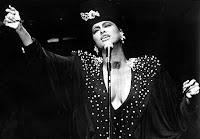 recorded for a 2nd album at Buddah titled 'Sing A Song', which is now available on CD!). The title track for 'Somewhere..' (produced by then newcomer Barry Manilow, a longtime admirer of Hyman's) became Phyllis' first solo radio hit. A cover version of Exile's 'Kiss you All Over' was remixed for club play as part of Arista's promotion, showcasing her versatility. The following year, the James Mtume/Reggie Lucas produced 'You Know How To Love Me' (1979, Arista) album hit the record stores, and the title track became one of Hyman's biggest hits. The 1979 album became a then best seller for Phyllis, even though Clive Davis wasn't enthusiastic with the finished project. She would include the hit title track it in her repertoire until the time of her passing. The album, which also contained fan favorites like 'Complete M
recorded for a 2nd album at Buddah titled 'Sing A Song', which is now available on CD!). The title track for 'Somewhere..' (produced by then newcomer Barry Manilow, a longtime admirer of Hyman's) became Phyllis' first solo radio hit. A cover version of Exile's 'Kiss you All Over' was remixed for club play as part of Arista's promotion, showcasing her versatility. The following year, the James Mtume/Reggie Lucas produced 'You Know How To Love Me' (1979, Arista) album hit the record stores, and the title track became one of Hyman's biggest hits. The 1979 album became a then best seller for Phyllis, even though Clive Davis wasn't enthusiastic with the finished project. She would include the hit title track it in her repertoire until the time of her passing. The album, which also contained fan favorites like 'Complete M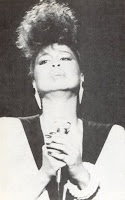 e' & 'Under Your Spell', was remastered & re-released in 2002 with informative liner notes & comments by producer James Mtume. The remastered CD also featured a rare unreleased 1977 track ('You're The One').
e' & 'Under Your Spell', was remastered & re-released in 2002 with informative liner notes & comments by producer James Mtume. The remastered CD also featured a rare unreleased 1977 track ('You're The One').In addition to having a hit album in 1979, Phyllis also lent her talents to the original soundtrack for 'The Fish That Saved Pittsburgh' (starring Julius 'Dr.J.' Erving!), which was a minor hit despite being slayed by most critics, but it was a lot of fun for basketball fans. Phyllis sang 'Magic Mona', which was the theme song for one of the central characters played by Stockard Channing.
In 1981 Phyllis co-starred (with Gregory Hines & Judith Jamison) in the hit Broadway tribute to Duke Ellington, 'Sophisticated Ladies' and continued in the role for two and a half years, garnering a Tony Award nomination and a Theatre World Award for Best newcomer. The original cast recording was released by RCA and the CD is now out of print. While performing in Ladies, Phyllis cut her next album, 'Can't We Fall In Love Again' (1981) featuring the title track (a duet with Michael Henderson), and production by Norman Connors. Phyllis was at the peak of her career at this
 point, and was wide
point, and was wide ly recognized as a New York celebrity. She was everywhere!
ly recognized as a New York celebrity. She was everywhere!The follow up album, 'Goddess Of Love' (1983) featured a sensational cover shot of Hyman at her most seductive, draped in a silver bugle beaded gown (which, according to Phyllis, weighed thirty pounds!) and sporting chandelier-sized earrings, a Hyman trademark. The album (produced by Narada Michael Walden & Thom Bell), although containing two strong tracks, was considered patchy at best and Phyllis, discontented with the material chosen for this project was blunt about her feelings toward Arista records and its cavalier attitude towards her."Firstly, I came to the label because of the takeover of Buddah. So I didn't have much choice in the matter," she recalled. "There were some nice records, but I'd say I was pretty much overlooked and ignored."Ironically, the title 'Goddess of Love' stuck with Phyllis as a term of endearment from both critics and fans. 'Goddess' would be Hyman's final Arista album, and even though it is a highly sought collector's item, Arista never released it on CD, and all of the songs are s
 cattered on a variety of Phyllis compilations released by Arista /BMG.
cattered on a variety of Phyllis compilations released by Arista /BMG.Phyllis was left unrecorded for four years due to contractual discrepancies with Arista, and since she was still 'legally' bound to the Clive Davis-operated company, signing with another label wasn't possible. Arista records also tried to destroy Hyman's career by deleting key albums/CDs, and also by preventing her from recording full legth albums elsewhere. During Phyllis' tenure as a prisoner at Arista, the label used all of it's resources to promote Dionne Warwick, Aretha Franklin & Whitney Houston's self-titled debut album in 1985 (Angela Bofill was barely holding on at the label herself at this time). While legal battles ensued, Phyllis appeared on numerous movie soundtracks & albums as a guest vocalist, most notably with Chuck Mangione, Barry Manilow, The Whispers, and The Four Tops.
Keeping in the public eye, Phyllis also toured extensively with her band, did a college lecture tour, and lent her voice to several television commercials.
In mid 1985, Phyllis was finally FREE from Arista, and in 1986, she recorded the classic 'Living All Alone' album for the resurgent Philadelphia International record label (released through Manhattan/EMI and produced by Kenny Gamble and Leon Huff). The release of the first single, 'Old Friend', brought Hyman back to the forefront of the industry with saturated radio play,
 international concert bookings, talk show appearances and countless magazine articles. Arista also attempted to cash in on the new success that Phyllis was enjoying by releasing the shabby 'Under Your Spell' compilation, which totally missed the mark. Phyllis also had a cameo role in the Spike Lee film, 'School Daze' (1988), performing the jazzy tune 'Be One', to which a video was later released. Other film appearances include 'Lenny' (1976), 'Two Scared To Scream' (1983) and a co-starring role with Fred Williamson in the action drama 'The Kill Reflex' (1991).
international concert bookings, talk show appearances and countless magazine articles. Arista also attempted to cash in on the new success that Phyllis was enjoying by releasing the shabby 'Under Your Spell' compilation, which totally missed the mark. Phyllis also had a cameo role in the Spike Lee film, 'School Daze' (1988), performing the jazzy tune 'Be One', to which a video was later released. Other film appearances include 'Lenny' (1976), 'Two Scared To Scream' (1983) and a co-starring role with Fred Williamson in the action drama 'The Kill Reflex' (1991).'Prime of My Life' (1991, P.I.R./Zoo/BMG) was Phyllis' eagerly awaited follow up album after a four year lull, but was well worth the wait as she took an active role in selecting the material. While making the album, she agonized over a recent breakup. "It made the songs difficult to record, but the results were fabulous," Phyllis conceded. The uptempo hit song, 'Don't Wanna Change The World',
 was enthusiastically received by clubs and radio, attaining international status and becoming her FIRST number one record according to Billboard. When the song's popularity soared, P.I.R./Zoo issued a remixed version to accommodate the demands of disk jockeys around the country.
was enthusiastically received by clubs and radio, attaining international status and becoming her FIRST number one record according to Billboard. When the song's popularity soared, P.I.R./Zoo issued a remixed version to accommodate the demands of disk jockeys around the country.In 1992 Phyllis was voted 'Number One Best Female Vocalist' in the United Kingdom by Blues & Soul magazine readers, beating out the likes of Anita Baker, Whitney Houston and Aretha Franklin. During this time Phyllis became involved in combating the AIDS crisis by lending her voice to countless benefit shows and visiting wards and hospices in and around New York. Many patients requested Phyllis' presence, which left the singer feeling inadequate and perplexed as to their reasons for wanting to see her as opposed to a family member or friends. The visits took a heavier toll on Phyllis that she realized. By now, her own personal problems were becoming evident. An ongoing battle with alcohol and weight gain, combined with career and financial woes were making life difficult for Hyman and those around her. In 1993 she was dealt another blow when both her mother and grandmother died within a month of one another.
Although Phyllis continued to record new material and perform live, her bouts of depression were clearly overwhelming her. Her irrational, self-destructive behavior was becoming common
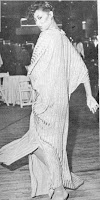 knowledge to those inside the music industry, her friends and also her fans and on June 30th, 1995, only hours before a scheduled performance (opening for The Whispers) at the Apollo Theatre in New York, Phyllis' lifeless body was found in her apartment where all efforts to revive her failed. Her suicide, while shocking, was not a surprise to many insiders. We, like so many others who know her, believed she would pull her life together. Sadly, we were mistaken.
knowledge to those inside the music industry, her friends and also her fans and on June 30th, 1995, only hours before a scheduled performance (opening for The Whispers) at the Apollo Theatre in New York, Phyllis' lifeless body was found in her apartment where all efforts to revive her failed. Her suicide, while shocking, was not a surprise to many insiders. We, like so many others who know her, believed she would pull her life together. Sadly, we were mistaken.In the posthumous released, 'I Refuse To Be Lonely' (1995, P.I.R./Zoo/BMG), Phyllis alluded to her inner struggle on several songs, five of which she co-wrote. Her most intimate and emotional project yet, 'I Refuse To Be Lonely' had reached the top 15 on Billboard's R&B chart, proving that talent of this caliber will always stand the test of time. Three years later, 'Forever With You' (1998, P.I.R./BMG), was released with the title being chosen by Hyman's loyal fans. 'Forever With You' is an awesome collection of unreleased songs
 that Phyllis recorded for Philadelphia International Records between 1986 and 1995, and it conveys the rich emotions that we have all come to associate with Hyman.
that Phyllis recorded for Philadelphia International Records between 1986 and 1995, and it conveys the rich emotions that we have all come to associate with Hyman.Most recently in 2003, Michael Grimaldi spearheaded the release of a special Phyllis Hyman compilation. The CD titled 'In Between The Heartaches-The Soul Of A Diva' (2003, Expansion Records), is being heralded as a classy tribute to the lost Diva, and it's packaging (liner notes, photos, etc.) is probably the best ever designed for a Hyman CD. The CD features many rare tracks including 3 with McCoy Tyner, 'Magic Mona', and a host of previously unreleased gems. While fans rejoice over Grimaldi's project, Arista/BMG continues to release redundant compilations for Phyllis including 'The Essence Of Phyllis Hyman' & 'The Ultimate Phyllis Hyman', which is nothing but a watered down version of 'The Legacy Of Phyllis
 Hyman'. All is not lost for Hyman's most devoted fans, as Grimaldi has revealed the existence of additional rare music, and future projects to honor The Sophisticated Lady's gift of song.
Hyman'. All is not lost for Hyman's most devoted fans, as Grimaldi has revealed the existence of additional rare music, and future projects to honor The Sophisticated Lady's gift of song.Phyllis Hyman's passing has left a void in the entertainment world, and in the hearts of many, including her most devoted fans. We wish that Phyllis knew how much she was loved & appreciated, and her legacy is a testimony to her tremendous gift of song. Phyllis Hyman will never be forgotten!
Prime Of My Life 1 When You Get Right Down to It (4:20)
2 I Found Love (4:25)
3 Don't Wanna Change the World (5:22)
4 Prime of My Life (5:11)
5 When I Give My Love (This Time) (7:03)
6 I Can't Take It Anymore (4:21)
7 Walk Away (4:24)
8 Living in Confusion (7:05)
9 Meet Me on the Moon (6:43)
10 Whatever Happened to Our Love? (4:06)
Now Playing: "Meet Me On The Moon"
Discussion Forum
Back Down Memory Lane with Minnie Riperton
Started by Tonya Anderson. Last reply by MsMerising Dec 27, 2010. 10 Replies 0 Likes
Minnie Riperton - Edge Of A Dream
Started by Edie Antoinette. Last reply by Edie Antoinette Jul 17, 2009. 4 Replies 0 Likes
Angela Bofill
Started by Edie Antoinette. Last reply by Edie Antoinette Jun 13, 2009. 5 Replies 0 Likes
Comment Wall
Comment
-
Comment by MsMerising on June 14, 2009 at 12:50pm
-
Now, don't get it twisted. Though Minnie Riperton is my favorite female artist of all time, it's Phyllis Hyman who I think embodies vocal perfection. Her rich lower range, her sweet higher range and the way she bended lyrics and emoted - Phyllis is what they call 'one-in-a-million'.
If you read the book (which I have done several times) what is clear is that Phyllis just didn't lover herself very much. She spoke about in interviews how she was not popular but in fact she was VERY popular because people admired her good looks as well as talent. She always had that mature voice we love even as a teenager. Her sibling speak on how she was a bully. Everyone does. Her management, her lovers, her co-workers on 'Sophisticated Ladies' and producers in the studio. She would just hate on people alot (e.g. hated on Mtume & Reggie's production of the 'You Know How To Love Me' LP before it even hit. It than went on to become her biggest album (gold status). However, when she asked them to work with her again they declined because they felt disrespected.
Phyllis would bully people. If they accepted it, she would continue to sh*t on them. If they stood up, she would humble herself. Phyllis was an antagonist - she made people work for her respect by acting her worst and bringing out their worst. Very twisted. It doesn't diminish my love for her talent and beauty, but at the same time she was her own worst enemy. Very sad stuff :(
On the other hand, Minnie Riperton was the TOTAL opposite. Well-loved, great memories. Very sweet with a WICKID sense of humor (I just wrote a whole bunch of info about her but than deleted it - you're gonna have to buy the article one day when it gets published - :P).
-
Comment by Edie Antoinette on June 14, 2009 at 12:27pm
-
..Dag MsMerising! Excellent comment---*blew me a....WAY!!!
What?!!! She was mean??? *smh* Most geniuses have some kind of messed up psyche ... why is that??? What in thee ..world! You just don't know how much I ate your comment UP! Deep! And no, I haven't read the book. I don't even know if I can stand to. I just want to remember my admiration.
"I also know people who dated her who said her personality was so horrenndous they just don't have anything positive to say about her."
*head thrown back boo-hooing* Say it ain't...so! LOL
Oh well. PLEASE MsMerising..tell me more. You got me hooked!
And thanks!
-
Comment by MsMerising on June 14, 2009 at 11:15am
-
@ EDIE
Have you read the book 'Strength of a Woman'? It's an intense read.
But one thing that the book really hammers in is that Phyllis had a mean streak Her beauty and voice is what endeared people to her. Without it, she may have been REALLY hated on. I also know people who dated her who said her personality was so horrenndous they just don't have anything positive to say about her.
I love Phyllis. But to gloss over the worst parts of her personality...I doubt we would tolerate that as much if we didn't admire her talent so much. What's so sad is so many of the vocalists I do love are renowned for their terrible personalities :(
-
Comment by Edie Antoinette on June 14, 2009 at 10:46am
-
Let me inject, also that she suffered from depression, and probably tried to self medicate. *sigh* She was soooo full of beauty and talent, ex-and-internally. What a loss. I spent like a whole day putting this together. I loved her.
-
Comment by Edie Antoinette on June 14, 2009 at 10:40am
-
...the crux of the matter is ...people. People are stingy when it comes to lending encouragement and support when they come across beauty. Trust me---I know.
they would rather use that energy to HATE on you rather than simply tell you that you are BEAUTIFUL, extraordinary. It kills people (most of em) to say...simply...'I love you'. How hard is that? I do it copiously though ... refusing to be patterned after the crowd.
I loved Phyllis with a love--and trust that Jehovah will bring her back. When he does, I'll be right there (I hope).
-
Comment by Tonya Anderson on June 9, 2009 at 11:22pm
-
Phyllis had a talent that is sorely missed today. Though Hyman never achieved the popular success such as Gladys Knight or Aretha Franklin did, she still stands as a diva among divas.
-
Comment by Edie Antoinette on February 10, 2009 at 10:50pm
-
No, haven't read Phyllis' book ...yet. Sweet little Minnie..I need to get here in here.
She and the talented Chante' Moore-Lattimore are both on the Whistle Registry.
Welcome to the group...
-
Comment by MsMerising on February 10, 2009 at 10:13pm
-
Oh wow...I have a group called "Fierce Funkin' Divas" at another ning website. My type of folks!
Nothing stirs my soul more than a soulful woman's voice...Minnie's crystalline tone...Phyllis Hyman's perfect bending of notes...Chaka's horn-like screeches...and the perfection of harmonizing care of Labelle. Gwen McCrae, Betty Wright, Zulema, Sylvia Striplin, Sylvia St. James, Patrice Rushen, Syreeta...could go on and on and on...
Has anyone read the book about Phyllis "Strength of a Woman"??
-
Comment by Edie Antoinette on February 4, 2009 at 1:27am
-
...and Carolyn...
-
Comment by Edie Antoinette on January 24, 2009 at 3:54pm
-
Welcome Michelle...
© 2026 Created by Edie Antoinette.
Powered by
![]()


You need to be a member of Divas to add comments!